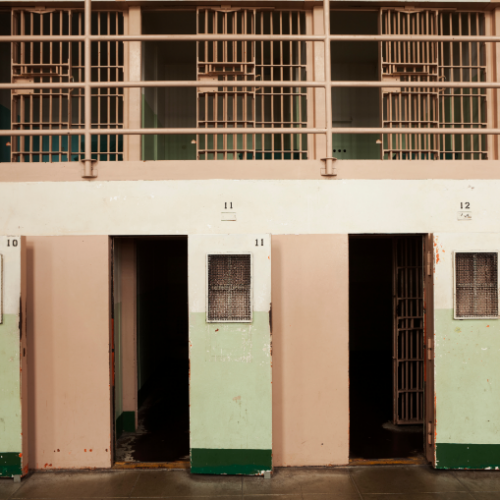Innovations in Supervision
This grant program provides funding for states, units of local government, and federally recognized tribal governments to develop and test innovative strategies and implement evidence-based probation and parole approaches that effectively address people’s criminogenic risk and needs and reduce recidivism. The U.S. Department of Justice’s Bureau of Justice Assistance (BJA) administers the awards.
Objectives and Deliverables
Grantees of this program are supported in the improvement of the capacity and effectiveness of their community supervision programs, with the goal of reducing the number of crimes committed by those under probation and parole supervision. The Innovations in Supervision program (formerly known as Smart Supervision and Smart Probation) is part of BJA’s Innovations in Public Safety suite of programs, which invest in the development of practitioner-researcher partnerships that use data, evidence, and innovation to assess problems and create strategies and interventions that are both effective and economical. A required deliverable of the Innovations in Supervision program is an action plan, envisioned as a product of collaboration among the supervision agency, research partner (if applicable), and technical assistance provider. The action plan should consist of a problem analysis, program and evaluation model, summary of strategies and intended outcomes, and research base for proposed strategies.
The objectives of this program are to:
- Reduce recidivism and crime, particularly violent crime;
- Implement effective community supervision practices, including incorporating incentives and sanctions into the supervision process to encourage positive behavior changes;
- Position supervision officers to be agents of behavior change, including training them to promote intrinsic motivation for positive change as well as to understand and respond to the needs of people with mental illnesses;
- Implement continuous quality improvement plans that measure outcomes and promote accountability, such as collecting data on short-term outcomes; and
- Promote increased collaboration among community supervision agencies, treatment providers, reentry agencies, and law enforcement.
For more information, see the most recent BJA grant solicitation and webinar.
Current and Past Grantees
BJA has awarded 49 grants through this program:
- 9 grants in 2012
- 6 grants in 2013
- 7 grants in 2014
- 7 grants in 2015
- 8 grants in 2016
- 7 grants in 2017
- 5 grants in 2018
A positive school experience, where a child feels secure, is essential for their well-being. However, for many children…
Read MoreWhen returning to their communities from criminal justice settings, people with behavioral health needs face barriers in accessing…
Read More Supporting Children of Incarcerated Parents: Reimagining School and Community Collaboration
Supporting Children of Incarcerated Parents: Reimagining School and Community Collaboration
A positive school experience, where a child feels secure, is essential for their well-being. However, for many children with incarcerated parents—one in 14 in the U.S.—school can feel far from safe due to stigma, trauma, and a lack of understanding.
Read More Bridging Communities and Correctional Systems: Q&A with CSG Justice Center Advisory Board Member Commissioner Nicholas Deml
Read More
Bridging Communities and Correctional Systems: Q&A with CSG Justice Center Advisory Board Member Commissioner Nicholas Deml
Read More
 Assigned to the Cloud Crew: The National Incarceration Association’s Hybrid Case Management for People with Behavioral Health Needs
Assigned to the Cloud Crew: The National Incarceration Association’s Hybrid Case Management for People with Behavioral Health Needs
When returning to their communities from criminal justice settings, people with behavioral health needs face barriers in accessing basic needs—including food, housing, employment, transportation, education, clothing, and substance use and mental health services—which increases their risk of experiencing a crisis.
Read More Meet the Medicaid and Corrections Policy Academy Mentor States
Meet the Medicaid and Corrections Policy Academy Mentor States
New Hampshire Department of Corrections Commissioner Helen Hanks presents at the Medicaid and Corrections Policy Academy in-person meeting.
Read More Taking the HEAT Out of Campus Crises: A Proactive Approach to College Safety
Taking the HEAT Out of Campus Crises: A Proactive Approach to College Safety
The sharp rise in school shootings over the past 25 years has led school officials across the U.S. to take a closer look at ways to keep students safe. For Chaffey College in Rancho Cucamonga, California, a tragic incident at a nearby university hit close to home and spurred campus leaders to revisit their own school’s threat assessments and crisis responses.
Read More










